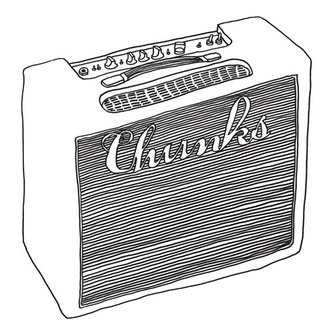The primary underground gesture of the 2000’s was the reclamation technique. The most thrilling subcultural efforts of a perennially terrified decade weren’t to be found in the pastiche revivalism of the mainstream. The good stuff tapped into jettisoned, semi forgotten alternative canons. The free folk explosion subverted the alienating effect of capital through embracing a totemic vision of artistic autonomy. The avant-primitavism of John Fahey and Albert Ayler was cross pollinated with D.I.Y and outsider visions, dripped into the underground on limited edition, hand crafted CD-R’s and cassettes. Dubstep, and the myriad subgeneric mutations that sprung up in it’s wake, served to re-enforce the primacy of the dubplate, the bedroom burned CD-R having been integral to the parallel grime scene. Then there was the evocation of a secret, hazily unsettling Albion fostered by hauntology, as well as the transatlantic echo that reverberates on into the current vogue for retooling the sonic mulch of the 80s into fuzz-crackle synthscapes.
Influential former blogger and head of the essential Dissensus forum, Matthew Ingram is now dedicated solely to the pursuit of his own sonic visions. Having tentatively stepped out with the excellent East Central One and Automat mini-CD’s in 2008, he has been on reclamation missions of his own in recent years. Last years Moanad attempted to wrest the guitar from the stupefyingly dull clutches of the indie middlebrow. It served as a timely reminder that post punk techniques were most often furthered by literate brutes and outwardly reserved nut jobs of relatively comfortable means. For his latest effort Chunks, again released on his own Hollow Earth imprint and available pretty much exclusively through Boomkat, Ingram has crafted a conceptual regeneration of a decidedly maligned pre-punk strand: the guitar/bass/drums driven, blues based groove. Meticulously crafted on an MPC, his approach remains collagist yet more subtle than on previous outings, employing the subversive postmodern program of hip hop to question why the pure pleasure of such instinctive music is primarily a guilty one.
Ingram has previously suggested that a widespread dissociative relationship with the body was a psychological ancillary to punk, one of the primary reasons for a shift from rhythm in guitar based music towards textural concerns such as overdrive and white heat speed. The popular notion of punk as an attempt to craft a vitalist music, without a basis in blues based groove betrays the sheer libidinous swing of The Stooges, the radical dionysian impulses of the MC5. Krautrock is the other elephant in the room. It’s revered by Ingram yet viewed as problematically overfetishised. The anti-rockist music press of the early 80s had us believe that only through the prism of Klaus Dinger and Jaki Liebezeit’s automaton funk could rhythm be justifiably valued. In order to challenge this notion, Ingram has rearranged passages culled from numerous genres that are largely viewed as critical punching bags. Prog noodling, raw 70’s boogie, proto-metal thrusts and overwrought psyche are assembled into often hypnotic loops punctuated with patternist callbacks. These are curious, microcosmic alternative histories. The act of sampling has always been a buffer against outmoded notions of high and low culture, a transformative weapon in the fight against cultural ownership. But it’s the elements that Ingram opts to siphon off as much as the passing moments he extends that pull you in. This filtering process refracts the source materials strutting bombast through a deliberately minimalist prism, Lo fi meets Hi fi.
Yet the overall effect is more nakedly idealistic than austerely conceptual, an innately enjoyable experience unhampered by fussiness. The simple joy lies in the uncovering of looped lick-slop and the forging of new pathways through the concentrated groove. The opening track of each side lopes out like a white boy Sly Stone, ‘Roger’ being a crisp junk shop gully, serious boom bap. ‘Argos’ clips up "whoa oah oohs" and solders them together into denim clad climax denials. Pure joyful. But it’s the array of inspired interventions that really reformat the source material. Poised use of delay and reverb renders things space age. EQ interceptions flip things on their heads when you least expect it. Take the bass swell on S.O.B, a seabed lurk towards the surface that initiates low end tremors, real junglist fostered dub science. Then there is ‘Rusticle’, in which a smoked out refrain is transformed through constant repetition into a forever mantra. So close to the blues yet, somehow, regenerative. Chunks teases out the sheer potential otherness of the rock rhythm, pre patterned yet with endless options. Like Ingram says: "Let’s not forget Kraftwerk were a rock group – their favourite music being Detroit heavy metal."


